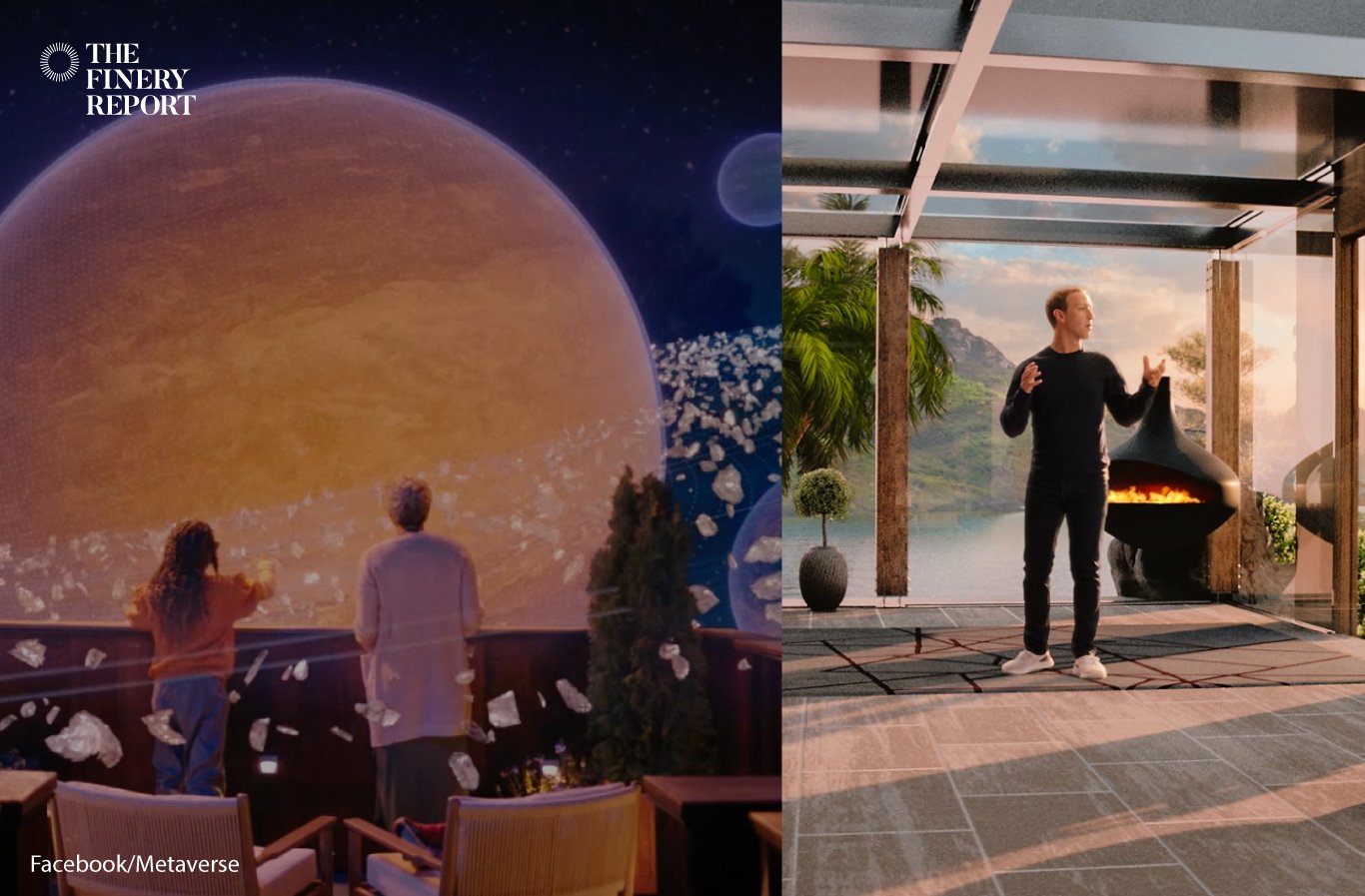Companies begin to tap into the metaverse, what is it exactly?
Companies are starting to experiment with technologies, such as VR headsets and smart glasses; the types of technology that are considered as parts that may build the whole environment of the metaverse.
For example, South Korean entertainment agencies have begun to launch their own metaverse. In June, SM Entertainment announced a partnership with Korea Advanced Institute of Science and Technology (KAIST) to create a metaverse technology that can be incorporated in music performance, where concerts can be attended by avatars.
SM Entertainment last year debuted its latest girl group, aespa, which consists of four human members with matching AI avatars that can perform in a virtual world. aespa’s latest album “Savage'' has a feature that allows fans to enter an augmented reality world known as Kwangya via a portal called “P.O.S”.
Separately, YG Entertainment partnered with Kwangwoon University to develop high-value-added meta-human (digital human) production talents for future industries. They also intend to run a meta-human education programme in conjunction with government support projects. Last year, YG Ent. invested $10.4 million in metaverse platform Zepeto and recently announced the launch of a virtual fan-centered cultural space known as “the SameE” that can be accessed through Zepeto.
With that being said, the “metaverse” is now seen as a new buzzword and trending topic in the 2021 tech industry, especially since Mark Zuckerberg announced the rebranding of Facebook to Meta a few weeks ago. The metaverse is deemed to have the capacity to change and revolutionise our online lives. However, what is the metaverse exactly? Is it or will it be the future of the Internet?
The term metaverse was first coined by Neal Stephenson in his dystopian sci-fi novel titled “Snow Crash” published in 1992. In the book, the Metaverse is the sum of virtual and augmented realities, a 3D “imaginary place” where people act as avatars. They use goggles that allow them to interact with each other as well as accessing software agents.
According to Mashable SEA, since then, the word “metaverse” has been used to describe all kinds of initiatives focused on creating a more permanent virtual reality that bleeds into our physical lives.
Zuckerberg, however, in his Facebook Connect keynote a few weeks ago defined metaverse as an “even more immersive and embodied Internet” where people are able to “do almost anything they can imagine—get together with friends and family, work, learn, play, shop, create—as well as entirely new categories that don't really fit how we think about computers or phones today.” He added that, “The best way to understand the metaverse is to experience it yourself, but it's a little tough because it doesn't fully exist yet.”
Zuckerberg’s definition of the metaverse is pretty much influenced by Matthew Ball who defined the metaverse as “a quasi-successor Internet where everyone and every company can exist, work, socialise, trade and create”.
Throughout his presentation, Zuckerberg kept highlighting how the metaverse would establish a “sense of presence” in the online world.
According to Meta spokesperson Lori Moylan as reported by NBC affiliate KARE 11, as of now people may experience the metaverse via games or immersive 3D documentaries. She added that today, there are education training programmes for doctors that are conducted in a VR space, so doctors could learn how to face situations without having the life-or-death pressure of real life.
She furthermore explained that Meta is developing products where people can have designated online work spaces, which allow them to work together from home with their coworkers in the form of avatars, giving a more real sense of connection.
It then leads to the question about the importance of the metaverse. Matthew Ball states that it can be considered as “the next great labor platform”. The metaverse may alter how we allocate and monetise modern resources, promoting the so-called “high value” economy via virtual labour, marking a consumer spending shift to virtual goods, services and experience where each person is able to act as a key participant.
Another question might emerge: in the future, will the metaverse become the manifestation that combines virtual reality, augmented reality, artificial intelligence, Zoom meetings, social networks, crypto and NFT's, online shopping and many more?

